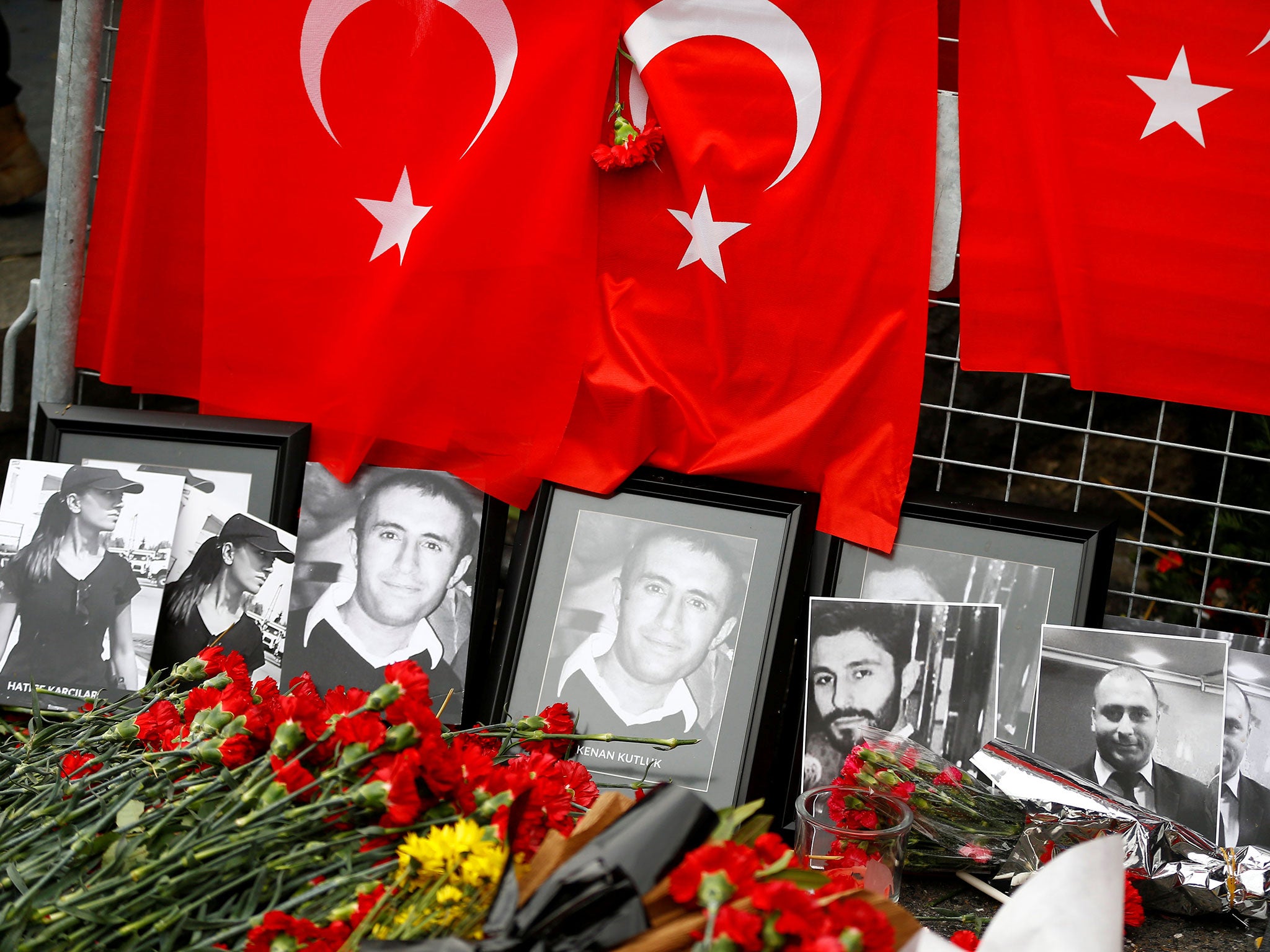Istanbul massacre offers a glimpse into the rise of terrorists from Central Asia
The power and reach of fighters from the region has grown in the violent maelstrom of Syria’s civil war


The New Year’s Eve massacre at the nightclub in Istanbul was another grim reminder of the vicious violence in which Turkey is now enmeshed. It also gave a glimpse into something which has hitherto received little international exposure – how terrorism from the steppes of Central Asia is casting its lethal shadow in the bloody world of jihad.
The murders at the Reina nightclub were carried out by adherents of Isis from that region, say the Turkish authorities, who also believe the same group may have been responsible for last year’s attack on Istanbul’s Ataturk airport. The gunman is said to be an ethnic Uighur, a Turkic-speaking Muslim minority in China. Those arrested as alleged accomplices are said to include Uighurs, Kyrghyzs, and Turkmen.
Four people died and a number were injured on Thursday in an assault using a car bomb and guns on a courthouse in Izmir. A number of people have been detained in the city over the Istanbul attacks, among them a group who have travelled from Konya, where the nightclub killer is known to have stayed for several weeks. Two of those killed were attackers, one a policeman and the other a civilian. It remains unclear, however, whether Islamists or Kurdish separatists of the Kurdistan Workers’ Party (PKK) were involved – but local Turkish officials were quick to blame the PKK.
The power and reach of the Central Asian fighters has grown in the violent maelstrom of Syria’s civil war, with an estimated 4,000 serving in hardline Islamist groups. Abu Omar al-Shishani, of mixed Chechen and Georgian background, born Tarkhan Batirashvili, was one of Isis’s most successful commanders, leading the Muhajireen Brigade, with a large contingent from the Caucasus, to a series of victories before being killed in a US air strike in July last year.
The threat posed by fighters from former Soviet Asian republics was one of the reasons given by Vladimir Putin for his game-changing intervention in Syria. Chechen separatists have carried out a number of high-profile attacks in Russia and there were repeated threats from jihadis to carry out more bombings. As well as carrying out air-strikes the Kremlin has also been accused of running a clandestine campaign of assassinations inside Turkey where a dozen Chechens, Uzbeks and Tajiks were killed in 12 months.
One of the main causes for so many of the Central Asian diaspora ending up in Turkey is President Recep Tayyip Erdogan’s desire to portray himself and his country as heirs of the Ottomans and the leaders of the Turkic people. A significant proportion of those who arrived were conservative Muslims, at odds with their governments at home.
Members of these communities have crossed the Syrian border to take part in the civil war. Some had taken children with them having arrived in Turkey, like the Istanbul killer, with their families. Young boys from Central Asia form a large part of the “Cubs of the Caliphate”, child fighters of Isis, and several, some no more than eight years old, have appeared in videos carrying out executions.
Frayed relations between Ankara and Moscow over the presence of the Islamist exiles, and the alleged killings by the Russians, have been mended in the rapprochement between the two countries. The Erdogan government appeared to have initially encouraged demonstrations in solidarity with the Uighurs after the Chinese government was accused of a crackdown during Ramadan with the foreign ministry issuing a statement saying “Our people are saddened over the news that Uighur Turks have been banned from fasting or carrying out other religious duties.”
But the protests were curbed after Chinese visitors and Chinese restaurants were attacked, followed by angry complaints from Beijing. As well as grave diplomatic repercussions, Turkey could hardly afford any further damage to a tourist industry severely hit after terrorist attacks and the upheavals around the failed coup last summer.
Two years ago the Chinese government reported that around 400 Uighur fighters of the Islamist Movement of East Turkestan – the separatist name for the Chinese province of Xinjiang – were fighting in Syria. Their usual route has been through Bishkek in Kyrgyzstan, to Turkey before crossing the border.
That number is said to have quadrupled since, accompanied by an increasingly violent challenge to the Chinese government. The Kyrgyzstan government claimed that Uighur fighters in Syria had organised an attack on the Chinese embassy last September in Bishkek. The attacker had used a Tajik passport to get into the country, illustrating cooperation between Central Asian insurgents. There have also been a rise in bombings and shootings in Xinjiang.
The attacks have led to a significant change in Chinese foreign policy away from avoiding overt military involvement abroad. Beijing recently agreed to train the Assad regime’s troops. The Central Asian connection continues to suck international powers into the quagmire of regional strife.
Join our commenting forum
Join thought-provoking conversations, follow other Independent readers and see their replies
Comments